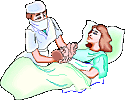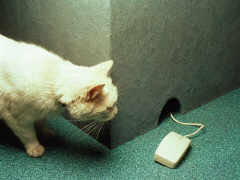Living with
Hashimoto's Disease

| "A cheerful heart does good like medicine, but a broken spirit makes one sick" Proverbs 18:22 Col. 3:15  I just wanted to add a word of encouragement since I was feeling a little down & caught myself being a little too negative tonight. I hope this is encouragement to you as well. This is my story of living with Hashimoto's Disease. I will share when my symptoms started and how I found out what I had. I will also share my progress and what I have found to help. I've included this purely for the encouragement of anyone who may be having similar stuggles and questions. Please consult your doctor about any thing I have included on this site that I have found to help me. Your doctor can help you determine if it will be benefical to you. I had gone through an extensive amount of stress with starting a new job in a different state, adjusting to the cultural differences, getting married, helping my husband with his new business & living off of one small income. All of this happened during the same period of time from the end of 1993-1994. I had started developing symptoms which I had contributed to stress. However my life gradually settled (my work improved, the problems at work decreased, I was beginning to be recognized for my hard work and began to get acceptance from the community, my husband's business began to prosper some and we were not quiet as poor). Unfortunately my symptoms did not disappear as I expected. Instead I got a sense of nervousness. There were no grounds for this. I had received superior evaluations at work, had made some friends at work and in the community, my marriage was less stressful and was good, and my husband was reporting feeling good about his business. So I saw my family doctor but he did not do a physical and said it was stress. However the nervousness only increased as well as the cognitive problems worsen.  I then decided to go to another doctor recommended by a friend. I couldn't get the doctor recommended because he had a full case load so I saw another doctor in the practice. He did the physical, found a goiter so he ordered the thyroid blood tests. After getting the results he diagnosed hypothyroidism. He told me hypothyroidism is fairly common and a number of things could cause it. He never could answer all my questions especially since the dosage had to be readjusted so often when he told me "We'll just find the correct dose. There are 3 doses, high, medium and low." He indicated after establishing the correct dose I would stay on that dose the rest of my life. That's fine but that isn't what happened. Needless to say he couldn't answer my questions and had no explainations for why the TSH levels kept increasing despite the medication. He also could not explain what was causing the cognitive problems. Therefore I ended up switching doctors again to my current doctor. He doesn't know all the answers but does take time to listen and try to find the answers. However I did discover such a condition as Hashimoto's thyroiditis and there is a thyroid antibodies test. I asked the doctor to run the thyroid antibodies test while he was running several others to address his concerns. He did agree with minimum objections. The thyroid antibodies level was over 900 (normal is negative). This explained why the TSH level keeps increasing and what caused the thyroid gland to quit working. My body had developed antibodies against it. Why? I don't know but there apparently is some degree of autoimmune disorders that do run in my family.  Several months ago I had read about a study on hypothyroidism where the researchers gave one group T4 only and the other group T4 and T3 to supplement the dose of T4. They did this for about 6 weeks then reversed the dosing of the two groups. Both groups had a 6 week trial on T4 and T3. Then they had tested both groups before and after the study. The majority of the subjects had reported they felt better with supplementing the T4 with T3. They had reported this helped improve their cognitive abilities which were adversely effected by the hypothyroidism. When I saw my doctor about 2 months ago, he reported he had read the same study and agreed to try me on the T3.  I have found it has greatly improved my concentration, thinking, memory and focusing. Before I found it extremely difficult to keep my trend of thought, comprehend what I read, or even focus long enough to carry on a conversation. I have a master's degree but felt like I was really loosing my cognitive abilities. I had gone to a neurologist who couldn't figure out what was wrong except for some unknown reason I wasn't getting information into my memory banks. He ordered some testing which only confirmed what I was telling him the problem was. The executive functioning was inefficencient, concentration and memory had declined which accounted for the decline in my cognitive abilities. However since I have been taking the T3 I have noticed improvement which has been consistant. I even feel it has helped some in other areas as well.  Needless to say not everything is perfect yet but it is improving. During this time I have been experiencing a high level of negative emotions related to the cognitive decline. Obviously being a counselor, I have learned a lot of the tricks of the trade to cover up for these deficiencies (and emotions). No one really knew there was any significant problems except for some close family members I shared this with. Now that the cognitive problems are improving I guess my body is letting the defenses down.  You can read more about depression & hypothyroidism.  I have noticed improvement in many areas of my cognitive abilities but still notice some deficiencies in short term memory. I have concluded this may be due to stress. I had a job which was very stressful at times. I have recently started a new job which appears to be less stressful and more fulfilling.  I did take a herbal supplement from Health Thru Nutrition (Mind Set) for several years. I did noticed an improvement in cognitive abilities including reading comprehension, speed of processing information and flow of thoughts. I have noticed an improvement in concentration and nearly not as distractable.  You can read more about the herbal company where I purchased Mind Set.  Unfortunately Mind Set doesn't do a thing for PMS but outside of that the cognitive problems has improved. I do feel stress has aggravated the PMS symptoms but since I have started a new job I suspect the PMS symptoms to gradually decrease.  I did have some follow up testing a couple of years after the first testing which did show some improvement in information processing, memory and overall intelligence (higher than what would normally be expected for "learning" and "normal variation". I consider this a confirmation to the improvements I have experienced. The tests still showed some "deficits" which some of these still remain and some of these are normal for me. I believe we all have some "deficits" (ex. poor spelling) which most people learn to compensate for by the time they reach adulthood. At this point I don't really plan to add any farther updates since I consider my thyroid levels to be stable (My TSH has been in the normal range for the past year) and my cognitive abilities have returned to near normal and continues to gradually improve. I continue to experience what I consider "syndrome symptoms" which I consider either related to hashimoto's, stress (from my old job) or "bad genes". However stress definitely brings these symptoms on (irritable bowel, migraines, drop in blood pressure). These "symptoms" I consider more of a minor inconvenience to a moderate nuisance (migraines) however a couple of OTC pain pills do solve the problem. I can usually limit problems with these symptoms by decreasing stress.  1/20/05 I'll add an update. My cognitive abilities continue to remain fairly stable. My thinking and processing information is adversely effected by stress, fatigue and hormonal cycle. When I'm well rested I can usually think clearly and process information adequately. I do occasionally experience what I call dead brain days or my brain stayed in the bed. However I personally consider this to be similar to what many people experience so I don't really consider it an "abnormality" unique to me but a common condition effecting just about everyone regardless of age and medical condition. I still notice a deficit as far as remembering things people share in a social setting. This is sometimes frustrating and gets me down at times which is difficult so has resulted in me being a little more introverted than what I use to be. However I feel this is the first area of my life adversly affected by stress so just have to allow myself to be introverted during stressful times and down days which we all normally experience. As far as other physical symptoms, they are gradually improving especially since the seasonal effective disorder is improving. (I apparently developed this as a result of having an office with no windows therefore not getting much sunlight which my brain and body apparently need. I still get occasional achs, stiffness and pains which I partly contribute to increasing age, being out of shape and monthly hormonal changes. If you're very intuitive you may be thinking I'm rationalizing or minimizing but I can accept and cope with things better if I know a logical reason for it. I do have an occasional dizziness (not caused by orthostatic hypotension or neurally mediated hypotension) which puzzles me. Another puzzling symptom which I cope with most of the time but has caused significant concern on a few occasions is a tendency to fall asleep or feeling sleepy especially when I'm in a situation where I can't get up and do something stimulating. This appears to be an insidious thing which have gradually developed over the past few decades or so. I'm not sure of the cause but have not noticed any particular medication that I can blame it on since the thyroid medications is the only ones I take on a continual basis. No matter how much or how little sleep I get doesn't eliminate the problem. Again I have to search for answers so I suspect either a slight abnormality of the nervous system partly brought on by environmental factors or a subclinical atypical case of narcolepsy. The fact my father drops off to sleep often (however he does not sleep long at night) and I noticed one of my brothers is sleepy a lot on vacation and when I'm around. I don't know how he is during the normal work week and during his normal routine. He and his family do have a very active and busy life so it may be just simple exhaustion from being on the go so much.  I actually got an email from a visitor regarding the sleepiness. Hello! I also have Hashimoto's disease - diagnosed about 1 year ago. I am on thyroxin (turquoise pill) 1x day. My TSH levels have decreased to normal levels now. It took a few different pills before we found one that seemed to work. I am usually very tired, even after getting up in the morning. Sometimes I wake up with bad headaches for no apparent reason. Trying to stay awake during meetings, lectures, movies, TV, while I have to sit still is very difficult. I am an elementary school teacher. I am very busy/active while teaching, which I enjoy, and have no problem staying awake. After my Children go home I seem to crumple. I have difficulty concentrating, staying awake, and getting paperwork done. I have a 1 hour commute to my school and find driving home in the afternoon very difficult. I listen to books on tape to help keep me awake, but I am still sleepy. I also use food to help keep me awake while driving (although this has led to weight gain - I am alive). This seems to also be a family problem for me. Other members in my family are often tired in the day, for no reason. I have learned that I may have sleep apnea. I will soon be tested for this (through my pulmunary doctor). I may have to get a breathing machine called b-pap or c-pap. This is supposed to help the apnea problem and give you restful sleep. I have a few family members who have these and swear that it seems like a gift from god. They are finally NOT tired all day, think better, and perform better at work. I hope this works for me. If this could help you, please check it out. Please look into it, it could be a big benefit - your life! Stephanie If you are experiencing daytime sleepiness and haven't had polysomnography (sleep studies) done you may be interested in having this checked out. Many people do have undiagnosed sleep disorders. Some sleep disorders are brought on by our lifestyles today (overworked, fast-pace, high stress and less than needed sleep, sedentary and slightly (or more) overweight). I do believe today's culture (USA) does bring out conditions which normally would not materialize under less stressful and more relaxing lifestyles. Actually the sleepiness I was experiencing has decreased dramatically over what it use to be. I still have occasional sleepiness but it's not nearly to the extent it was. I use to routinally experience several sleepy spells per day especially when I would slow down for the day (paper work, driving, meetings, etc.) Now I may experience sleepiness (outside of normal bedtime sleepiness) only a couple times a week if that often. I'm not sure if this was an underlying narcolepsy or not but whatever it was seem to be worsened by increased stress levels.   I did discover a couple of things as a result of participating in a twin study a few years ago. I had a periodic bothersome neck pain and headaches that would come and go. I learned I have a couple of bulging disks (one is a minor bulge & the other is less than minor bulge both on the right side) at C5-C6 & the other at C6-C7 which is likely to contribute to the periodic neck pains which at this time a couple of excederines or maybe a muscle relaxant at night helps eliminate the pain. The pain usually lasts for maybe up to 3 days but does gradually decrease over the 3 day period. It's easily manageable but does give an explaination for the neck problem. The interesting thing is there was no injury that I can contribute to this, just the stressful period I shared above since this pain first emerge sometime in 94 or 95. After reading more about it, I believe stress was a factor in contributing to this.  I was emailing my sister on some things I have learned, then decided to add it here for the benefit of anyone who might read this. I have found out that Attention Deficit Disorder is the apparent cause of the underlying mood & social skills problems I've always struggled with. These problems weren't noticable to others so much but have been a major source of problems & frustrations for me. "ADD isn't a precursor (to fibromyalgia). It was an undiagnosed condition that has been the source of many of the social & mood problems I have had all of my life. It goes along with the learning problem that has been compensated for in many ways but still has a little residue that causes some problems that are not as apparent to others. What many call "invisiable disabilities". This is what accounts for the social inadequacies. Some of the problematic symptoms are: having excessively strong emotional reactions to things that normally doesn't cause that strong of an emotion in others (easily frustrated when can't locate something that isn't where it's suppost to be,impatience with traffic, machanical things, phone automated systems, cell phones not working, people not returning phone calls or acting like human robots without a brain or common sense), extremely distractible (problems keeping a trend of thought, distracted by TV, other people talking, own thoughts & just forgetting what you were saying in mid sentence), forgetful (brain doesn't hold information & experiences like brains without the left hemosphere problems. This results in unable to give many details, recall names & events, etc.) & sensory overload (dislike of large crowds, excessive noisy environments, having too much clutter & unfinished projects. The sensory overload causes negative emotions-sadness, irritation, inadequate social feelings because unable to process all the commotion going on & may cause "brain fatigue".) The auditory processing disorder causes the brain to not hear or compute words that are spoken. The ADD causes the brain to drift with thoughts when people are talking. (This happens a lot, but I tend to think everyone's minds drift.) Reading comprehension poises some problems when my brain wonders but many years ago I've accepted this & just reread what my mind wondered on. It focuses after awhile & can stay focused for awhile before the brain wonders again. I've accepted this & have been able to do ok academically. In school I've always sat up front partly due to vision & partly due to distractions. Poor spelling has improved with more education & everyone else's standard in spelling decreased considerably. I rarely come across anyone who can spell good any more. Everyone has good & bad spelling days. Anyway much of the symptoms I've compensated for, especially academically but socially ADD does cause problems. Socially my skills are viewed as normal because there are people whose skills are low (lower IQ levels, hermits, etc.) but inside there's a part of me that is just as intelligient as the people who socialize better. This is where the internal frustrations come from."  Praise the Lord for His answers. I am a why person & the Lord knows I accept things if I know the reason. The Lord revealed to me what the problem is & what is causing the cognitive problems. It's apparently both a combination of an apparent LD I was born with. However I learned that the right temporal lobe of my brain apparently is not functioning the way it use to. This apparently is the same type of abnormality some researchers report in people with Chronic Fatigue Syndrome (CFS). I may feel tired & wore out sometimes but so does a bunch of other folks so I don't consider I have CFS however my brain (and many other people with thyroid problems) has the same abnormality so experience the same cognitive problems. Since I now know the reason for the cognitive problems & what is causing it, I expect the depression to continue to decrease & no longer to be a major problem. I am no longer taking the Adderall (it caused depression) & am trying another medication for memory. If it works, I'll share it on the site. It didn't work for the long term.  Update 1/12/09 It's been a very long time since I've given an update. I got 2 new poodle puppies which have kept me busy but that was 4 years ago! Anyway I just got doing other things so just haven't been doing much on the computer as far as webpages. :) Anyway I do want to share a few things. I had a friend who suffered from depressive symptoms and stinking thinking. One day she shared with me that her doctor checked her Vitamin D level and told her to take more vitamin D since her Vitamin D level was low. I noticed that she was much more chipper and no longer having problems with the stinking thinking so I started taking vitamin D (it was during the summer) and increased the amount I take during the winter months. I was taking it for SAD during the winter months but didn't take it when the days were longer. When I started taking vitamin D I noticed my moods improved and whenever I catch myself having some "depressive symptoms" I'll take a vitamin D pill. It has helped greatly. My doctor did check my vitamin D level a few months ago & found it was a little low despite taking vitamin D so I increased my dose of vitamin D. I didn't hear on the news anything about the impact of vitamin D on mood or depression when they have been talking about the FDA increasing the daily recommendation of vitamin D to help with bone health. Think about the effect of lack of sunlight in contributing to Seasonal Effective Disorder and the fact our bodies get vitamin D from being in sunlight. Therefore I recommend anyone having problems with depressive symptoms to have their vitamin D level checked and talking to their doctor about increasing their intake of vitamin D. Cognitive problems persists but I still am convinced that stress has an increased negative impact on my cognitive problems. Now being postmenopausal, this has had an impact on improving cyclic hormonal fluxuations and improved stability in mood and physical health. A very important thing my husband and I have started doing is working out at a local fitness club which just opened up in the neighborhood. We have only been going for 3 days but it has helped a little age related bodily querk in a knee. Working out has also helped with energy level and I am anticipating numerous health benefits including lowering stress level, improving overall health and reconditioning some ole muscles and joints. "A cheerful heart does good like medicine, but a broken spirit makes one sick"  I hope this will comfort and give hope to someone who may be experiencing similar problems with hashimoto's thyroiditis. "It's Up To You" "One step must start each journey, One word must start each prayer. One hope will raise our spirits, One touch can show you care. One voice can speak with wisdom, One heart can know what's true, One life can make the difference, You see, it's up to YOU!"  Links  Search by Symptom Have a symptom you're not sure what is causing it? Familydoctor.org has a very useful flow chart that can help give some possible answers so you can find out more info to talk with your doctor about. Helps Heal All Wounds Are you feeling stressed? Finding your inner calm may help your body's healing process. In a study of patients undergoing surgery, those who were the most stressed during the weeks before surgery tended to have the slowest recovery from the procedure. Help your wounds heal faster by making an effort to keep daily stress levels under control with deep breathing, meditation, or other calming activities. More and more research is revealing that there is a strong connection between the mind and the body when it comes to health and healing. Stress appears to affect the immune system, which can hinder healing or open the door to infection and disease. Be good to your spirit each day with stress-reducing pastimes that nurture feelings of calm and improve your mood. RealAge Benefit: Taking care of your emotional health and well-being can make your RealAge up to 16 years younger. PMS Rosie O'Donnell's web site artical written by health columnist Tracy Chutorian Semler which is reviewed by a special panel of medical experts at the New York-Presbyterian Hospital/Weill Cornell Medical Center. How herniated disks occur "disk herniation is usually the result of a gradual, age-related, degenerative process. Your spine will become stiffer and lose its flexibility as you age. By the time you are 30, your disks begin to show signs of deterioration. They begin to lose their water content, becoming flatter and more brittle as they dry out. Sometimes the disk will swell and bulge out, without actually releasing any of its center fluids. These changes are part of the aging process and account for most episodes of low back pain, though they also can occur without pain." Apparently just a genetic age related factor & can easily be treated by reducing stress & other nonsurgical ways. Mayo Clinic site gives good brief information on herniated disks. Chiari Malformation, Cervical Spinal Stenosis and Fibromyalgia Gives excerpts of news on chairi malformation. Dr. Lamb gives his opinion on each news story. I tend to believe his statement here. "I suspect that the Chiari Malformation is present at birth but that symptoms probably occur in people after cervical spinal compression from injury, repetitive work or progressive spinal degeneration. Perhaps the bone of the foramen magnum enlarges with cervical spine traction contributing to the Chiari syndrome." There are people who have this & don't know it who have no symptoms commonly associated with it(from experience). Dr. Rosner Leads the Way with other medical doctors to show the Relationship of Spinal Cord Compression to FMS gives 2 studies of how surgery decreased symptoms of CFS, FM & neurally mediated hypotension as well as specific instructions to give your doc if you want an MRI done that could determine if you have Chairi I Malformation. SPINAL DISEASES & DISORDERS Chiari Malformation Detailed explaination of Chairi I & II Malformations including abnormalities, symptoms & treatment. Chairi Malformation information & MRI of Chairi Malformation. The Chiari ClinicThe Adult Chiari I Malformation explaination of the condition, anatomy of the brain, symptoms and treatment. Central Nervous System Includes comparative symptoms chart, descriptions of Chiari I malformations, and several abstracts related to these abnormalities. Need a little brain teaser? Sonja's web page She also has Hashimoto's thyroiditis and did a web page on her experiences. |


